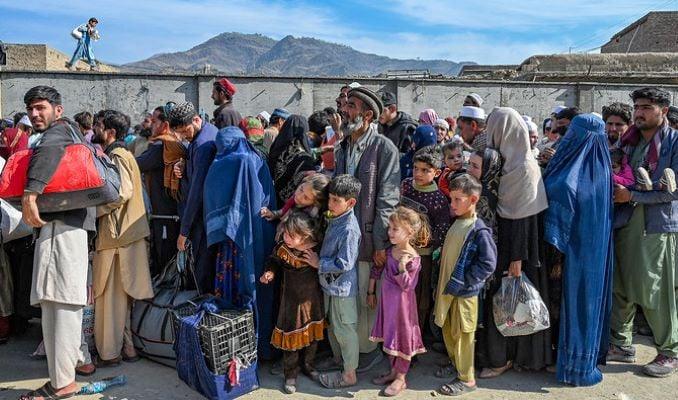The Government has reaffirmed on April 30 as the final deadline for all foreign citizens residing in the country without valid visas to leave, with the Interior Ministry intensifying its repression under the repatriation plan of illegal foreigners.
The measure is particularly addressed to undocumented Afghan nationals, with the Minister of State of the Interior Talal Chaudhry announcing the renewed impulse at a press conference in Islamabad on Friday.
“Pakistan has demonstrated unparalleled hospitality for decades, but the time has come to strictly enforce our immigration laws,” said Chaudhry.
His statement is ahead of the Vice Prime Minister and Minister of Foreign Affairs, ISHAQ to give Kabul, where a high -level Pakistani delegation will hold conversations with the Afghan government.
Initially, the Government had established a deadline of March 31 for Afghan citizens who lacked legal documents or who held Afghan citizens cards to return voluntarily. That deadline extended later to April 30.
Since the beginning of April, more than 84,800 Afghan have been repatriated, according to Chaudhry. He said that the process is being managed in a “legal, organized and human” way, with coordination of the Afghan authorities to guarantee a transition without problems.
Pakistan has received millions of Afghan refugees in the last 40 years, but currently more than 2.1 million remain, mainly in Khyber-Pakhtunkhwa and other provinces.
Officials cite the growing national security threats as part of the reason behind repression. More than 1,600 people died in attacks last year, almost half of the security personnel.
Chaudhry also warned about a strict action against Pakistani who provide housing, jobs or other services to undocumented foreigners. “If someone gives a store, home or some kind of space to an illegal foreigner, they will be responsible under the law,” he said.
In addition, he revealed intelligence by suggesting that some weapons left by US forces in Afghanistan have ended in the hands of terrorists, representing a serious regional threat. “Our policy is not driven by hostility, but by the need to maintain the law, guarantee public safety and protect national interests,” he said.




